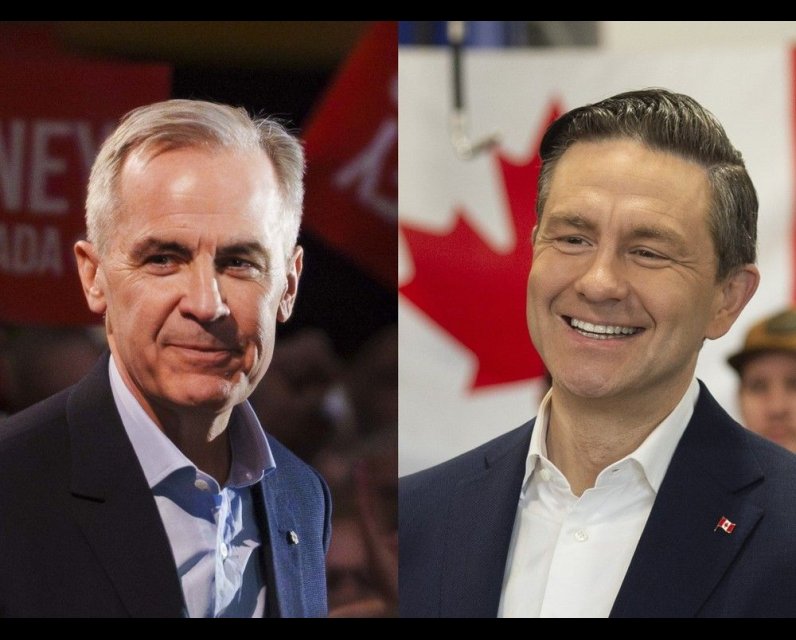Source Feed: National Post
Author: Tom Blackwell
Publication Date: April 13, 2025 - 18:02
Poilievre slams alleged Carney conflicts, pledges new ethics law
April 13, 2025

A Conservative government would make anyone running for office disclose where they paid taxes for the previous seven years, party leader Pierre Poilievre said Sunday while outlining a proposed new ethics law — and blasting Liberal Leader Mark Carney’s own alleged conflicts of interest.
Cabinet ministers would also have to divest from tax havens and prime ministers would be required to sell off all their assets under the new rules Poilievre promised.
But the Conservative leader deflected a question about whether he would put new limits on candidate nomination votes as a way to combat another ethical minefield: foreign interference in Canadian politics.
Carney himself did not make a public appearance Sunday, while NDP Leader Jagmeet Singh promised he would boost the number of doctors serving northern Ontario as part of a strategy for the region, a traditional New Democrat stronghold.
Poilievre touted his proposed new ethics law as a way to plug “loopholes” he said the Liberal government had found in rules implemented by the previous Conservative administration.
But as his party continues to trail in the polls and his approval rating remains below Carney’s, he used the announcement to roundly criticize his Liberal rival for lacking transparency about his personal finances.
“Mark Carney is already the most conflicted prime minister in Canadian history,” the Tory leader alleged. “His conflicts touch everything — from his business interests in nuclear energy to real estate to income tax laws.”
“We’re going to put Canadians first for a change. We’re going to have accountable government for a change.”
Controversy has surrounded Carney’s refusal to disclose details of his financial holdings after serving as chair of Brookfield Asset Management, which has a trillion-dollar book around the world. According to company filings, he has $6.8 million in Brookfield stock options, and helped the company obtain a $250-million loan from the state-owned Bank of China last November.
Carney says his assets are in a blind trust, meaning a trustee manages his investments and he has no control over them.
Poilievre also charged that the prime minister will not reveal where he pays taxes after a globe-trotting career that included several years as governor of the Bank of England. But the Liberal campaign said that is simply not true, while referencing the Conservative chief’s lack of private-sector experience.
“Mark Carney pays income taxes in Canada and has always followed all the rules as a tax-paying resident of Canada,” said campaign spokesman Mohammad Hussain. “Pierre Poilievre continually attacks Mark Carney’s expertise in business and finance because he has no experience of his own.
“While Pierre Poilievre continues his desperate attacks, Mark Carney is taking action to stand up to Donald Trump’s tariffs and build a stronger economy for all Canadians.”
A group that advocates for tougher ethical rules in government was lukewarm on Poilievre’s proposals, saying that while well-intentioned, they’re muddled and don’t go nearly far enough.
The Conservatives propose to ban blind trusts because of their lack of transparency, for instance, yet suggest cabinet ministers need only disclose their investments to the ethics commissioner, not the public, noted Duff Conacher, co-founder of Democracy Watch.
And while they say the prime minister should sell all his or her assets, other public officials would face no such requirement, he said.
As well as requiring political candidates to say where they’re paying taxes, Poilievre proposes:
- Requiring business leaders and other private citizens who act as government advisers to register as lobbyists if they stand to profit from their advice;
- Banning politicians from making decisions that benefit them or their families disproportionately;
- Increasing fines for ethics violations to $10,000;
- Forcing cabinet ministers to sell off investments in tax havens and disclose assets to the conflict of interest commissioner;
- Making party leaders disclose their assets within 30 days of getting the job, and selling off assets within 30 days of becoming prime minister.
Shiann Darkangelo scored the winner at 9:17 of the third period to lift the Ottawa Charge past the Montreal Victoire 3-2 on the road in Game 1 of their best-of-five semifinal series Thursday.
May 8, 2025 - 22:19 | | CBC News - Ottawa
Advantage Ottawa. The Charge lost a couple of early one-goal leads in its first PWHL playoff game, but then held on to the only one that mattered. Shiann Darkangelo’s wrist shot from the top of the right faceoff circle at 9:17 of the third period stood as the winner as the Charge grabbed command of […]
May 8, 2025 - 22:18 | Don Brennan | Ottawa Citizen
"It was just very strange, the whole incident. I don't know what they were looking for. They didn't even have me step out of the car, I just had to put the car in neutral."
May 8, 2025 - 21:23 | Amy Judd | Global News - Canada


Comments
Be the first to comment